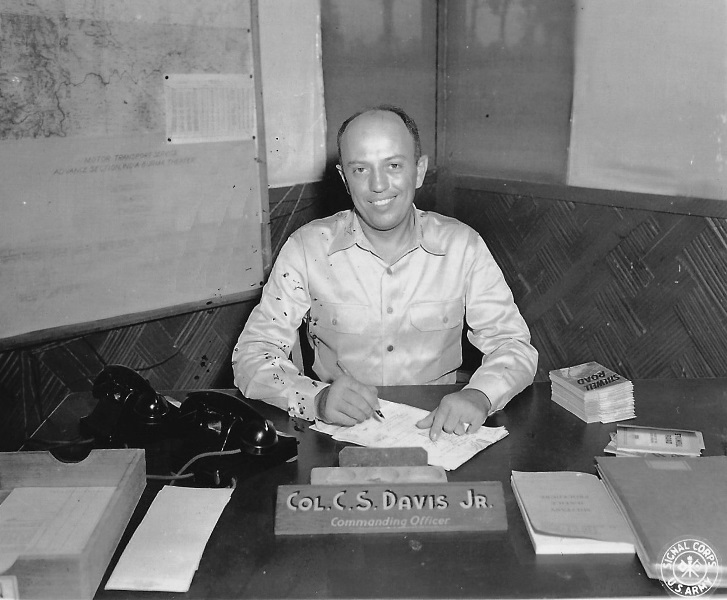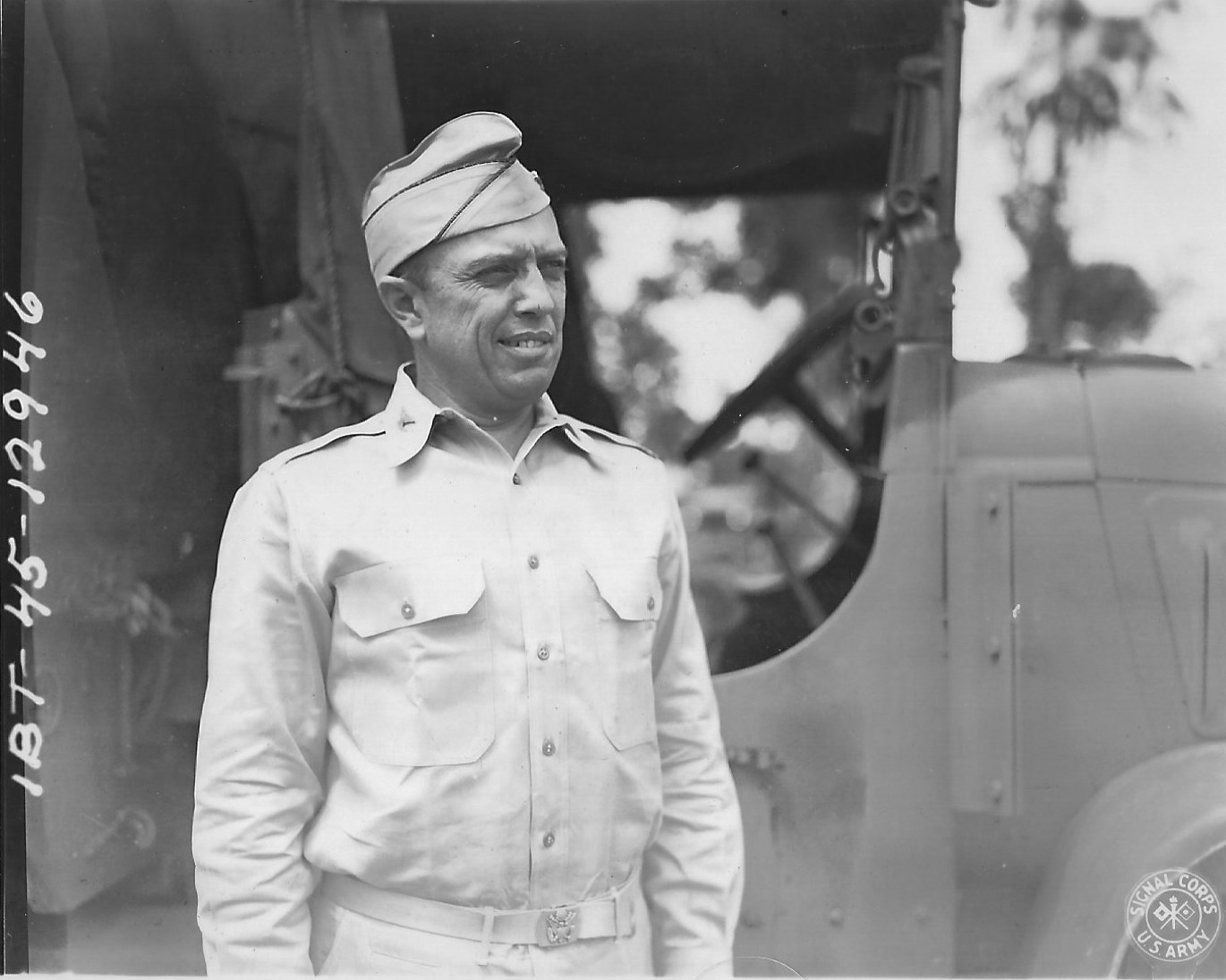ROAD BUILDING HARDSHIPS RELATED BY COL. C. S. DAVIS On General Pick's Staff, the Kansas Citian Has Had Part in Struggle to Open Route to China |
 |
Winding through jungle valleys and over mountain passes on the other side of the earth lies the virtually completed Ledo Road, China's lifeline, known the world over as "Pick's Pike" because it was built under the personal direction of Brig. Gen. Lewis A. Pick, the Missouri valley's own Colonel Pick.
There is even a closer tie between Kansas City and the double roadway that supplants the lost Burma Road, breaking the Jap strangle-hold on China. Executive Officer under Gen. Pick is Col. Charles S. Davis, Johnson County, Kansas, at home on leave for a visit with his wife and 10-yesr-old son, Charles, Jr.
COLONEL DAVIS TO RETURN
General Pick and his engineers are still on the Asiatic job and Colonel Davis will rejoin him when his leave expires. When he left, he said, "There were still ten miles of Japs to be cleared off the road."
"Just try to supply an army and build a road at the same time," Davis suggested. "It was a real job for General Pick and the engineers who have completed the Ledo Road into China."
The 1,000-mile highway extending through India was built through monsoon and under Japanese fire.
Contrasted with its problems, the billion-dollar Missouri River development plan General Pick, then a colonel, produced two years ago, since approved by Congress and the President, was simple.
MONSOON WORSE THAN JAPS
Telling of the Ledo Road project, Colonel Davis wasn't sure the monsoon was not a greater menace to construction than the Japs.
"The monsoon continued for five months," he said, "while skirmishes with the Japs were frequent but with lulls between.
"Finishing the job is only the start as maintaining and keeping the road open will continue to be a lot of hard work.
"As soon as General Stilwell's and General Sultan's armies would clear off the Japs we'd build the road right behind them, bringing construction often right into the Chinese gun positions."
GOOD WORKERS ON JOB
The road was designed and built at the same time. Chinese and British Indian troops joined in the construction job, and they were good workers, Colonel Davis commented.
The engineers were always subject to possible air attacks and the hard surface road was sometimes destroyed by Jap bombs and had to be rebuilt. Airfields were built along the road and a pipeline installed.
Some of the terrain was comparable to the Pike's Peak region of the Colorado mountains and so the name "Pick's Pike" originated.
"The problem of supplies was always serious, as we had to work them through construction and bring them up with trucks," Colonel Davis explained.
HIS CHINESE LIMITED
The languages used were a mixture, and Colonel Davis said he learned enough Chinese to ask for a sandwich and a drink.
"The opening of the road will have a great mental effect on the Chinese, who have been cut off from any trade with the outside world for two and a half years," the colonel said. "It will give them the will to resist."
Colonel Davis attended Central High School in Kansas City and the University of Missouri. He was in the Omaha office with General Pick before they left for China.
NOTE FROM JOE DAVIS
"As I recall, that trip home was when I was 10 months old. I was Charles S. Davis III. In 1954 changed to Charles Joseph, as everyone had been calling me Joe since I was born.
"The trip home in early 1945 was specifically to get permission from the "brass" to use Black drivers. Up to that time, they were mostly mechanics and workers, driving had been left to the Chinese. The Allies had been losing 10 percent of vehicles and supplies during this early period when the Chinese were the drivers. The trucks just disappeared into the black market at the far end of the road. Dad suggested the use of Black drivers. The "brass" kicked this decision up the chain of command, as it was a tricky one in those days. No one wanted to stick their neck out.
"It finally came to rest on the deck of FDR. My Dad was summoned into the oval office for a short meeting, FDR approved it. Back he went to Burma to implement the plan."
NOTE
After serving as Executive Officer to Gen. Pick, Col. Davis was made commander of the Motor Transport Service which was tasked with delivering supplies and equipment over the new "Stilwell Road" to the Chinese in the fight against the Japanese.

Photo by U.S. Army Signal Corps.
A LEDO ENGINEER HERE
As published in the January 28, 1945 issue of the Kansas City Star
Original article from the scrapbook of Josephine Smith Davis - Courtesy of Joe Davis
Adapted by Carl W. Weidenburner
Photos not in the original article have been added to this re-creation
TOP CONTACT US CBI NEWS ON THE HOMEFRONT LEDO ROAD CBI THEATER
Copyright © 2021 Carl W. Weidenburner Visitors